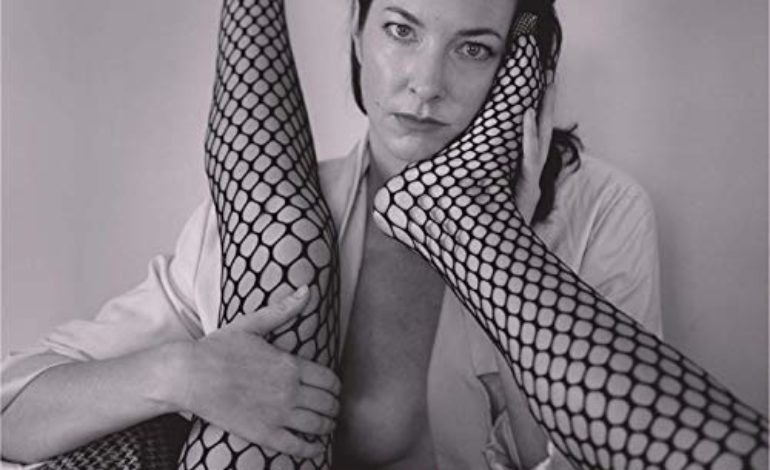

Try dancing to this
It’s been almost three years since we last heard from Los Angeles singer-songwriter Alex Lilly. Her 2016 EP, Paranoid Times, put her pop sensibilities on full display but did little to distinguish her from her contemporaries. With her debut album, 2% Milk, Lilly presents us with a fully developed vision that is an alarming jump in originality from her EP.
She doesn’t waste a single beat starting out this record. “Confucius Says” kicks things off with a barrage of haunting synths sprinkled with off-kilter hi-hats, all taking place over a subdued Bo Diddley beat. The lush instrumentation is reeled in during the verses, as Lilly recites an amusing anecdote about conversations with her therapist. Amazingly, none of the track’s momentum is lost in this change in dynamics.
As the record continues, Lilly begins taking plays out of Peter Gabriel’s playbook. This is most evident on the title track. The 15/4 stomp of the verse keeps the song lurching along, aided by a bouncing bassline. When the pre-chorus hits, the beat falls away entirely, leaving the listener with some stabbing cellos and Lilly’s rumination on her depreciated life: “All that was rich / All that was whole / Used to be mine.” Then, as the chorus comes on, we are instantly immersed in a sea of shimmering synths. All the tension Lilly accumulated during the verses melts away.
“Boomerang,” an unassuming song about the ambiguous dynamic of an on-again-off-again relationship, is a hidden gem on the record. Here her voice lackadaisically waltzes above a melancholy stream of synthesized strings as she sings honestly about her dysfunctional lover, the titular “boomerang.” The bittersweet melodies marry perfectly with the lyrics, effectively communicating the emotional depth of such a tumultuous relationship.
Track seven, “Infantile,” stands apart from the others, as it makes very little attempt to retain any pop sensibilities. Syrupy synths, frenetic piano arpeggiations and hectic handclaps coalesce into a whirlwind of dreamy sonic texture. As the instrumental swells, Lilly jumps in with an otherworldly vocal melody that fits perfectly amid the cacophony and nowhere else. Despite being the shortest song on the album, she covers a lot of ground and explores more aural territory with this song than any of the others.
Apparently, Lilly saved the best for last. The closing track, “Firefly,” is the most straightforward pop song on the album, and it offers up the most memorable lyric on the album: “My love is a firefly / it only lives for just one night.” The longing introspective subject matter feels perfect against the luminous backdrop of twinkling echoing synth plucks.
Unfortunately, there are points in this album where the momentum gets noticeably interrupted. Track four, “Pornographic Minds,” is one of these unfortunate lulls. This track displays none of the rhythmic or tonal risks she takes on the rest of the songs. While the subject matter (sexual harassment in the workplace) is compelling, she doesn’t present it in a memorable or impactful way. Shortcomings aside, it doesn’t necessarily feel out of place, just underwhelming.
“Night Drive” is another unexceptional moment. On this track, Lilly attempts to craft a story that unfolds via a conversation between the narrator and a taxi driver. Ultimately, the song disappoints, as there’s no clear plot besides the narrator’s indecision of where she wants to go. The voice modulation she uses to “play” the driver and the instrumental break near the end are noteworthy, but not significant enough to save the song.
Track eight, “Cold Snap,” is the lowest point on the album. Compared to every other song, it lacks all the qualities that make the rest so endearing. The vocal harmonies in the chorus are interesting, and the dark energetic tone contrasts well against the airy and listless feel of the verses, but the lyrical platitudes detract heavily from the enjoyment.
But for all its idiosyncrasies, this album feels ultimately succinct and unified. Conventionally, a pop album seeks to deliver what the audience wants; it’s supposed to be predictable and familiar. On 2% Milk, Lilly denies the listener any opportunity to dance, opting to throw the audience into a sea of off-kilter syncopation and unpredictable melodies. Lilly’s ability to create and maintain earworms that fit so seamlessly over these unruly beats is a testament to her unique ability to express herself unrestrained in a genre that is known for its rigid limitations on tonality and song structures. This is the sound of an artist exploring the parameters of their musical palette; Alex Lilly has clearly tapped into the same vein of musicality that helped elevate the pop genre to the point of high art.
